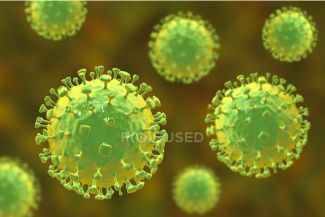

Recently, Kerala made headlines for the untimely deaths of ten people by the mysterious Nipah Virus. With two others in critical condition in the state, the country has been jolted into high alert with the government initiating grassroots-level interventions aimed at containing the condition.
To Consult: The Best Pediatrician in Pune
A hitherto virtually unheard-of virus, the Nipah derives its name from its origins in the Malaysian town of Kampung Sungai Nipah, where it was first reported in 1998. The Nipah Virus is known to be fatal to both humans and animals and is thought to stem from infected fruit bats. In India today, human-to-human contact and airborne transfer have led to the rapid proliferation of the disease in Kerala. With no vaccines currently available for the condition, it is important to be mindful of symptoms, precautions to be taken and possible treatment methods.
To Know More About: Healing the Heat
The Nipah Virus is a zoonotic disease (one transferred from animals to humans) that can cause acute respiratory illness or even severe brain infection (Encephalitis) in those affected. Originally hosted and spread by fruit bats, the disease can be transferred through direct touch or bodily fluids from infected people or animals. It can even be caused by the consumption of contaminated fruit, left abandoned by bats or other Nipah-carrying creatures. Keep in mind that the disease can easily travel from sick individuals to caregivers, so necessary caution must be exercised while treating an individual afflicted with the condition.

The Nipah Virus can present symptoms that appear either individually, or in combination with each other. These include:

Must Read: How to Treat Baby’s First Fever
If you’re in an area affected by the Nipah Virus, adopting certain precautions will go a long way in shielding you from the condition:

To Know More: About Vaccination Rulebook
The principal treatment for Nipah Virus is intensive care and support. The challenge in treating the virus is that direct contact can encourage the spread of the condition, meaning that nursing and medical staff face an increased risk of contracting it. Although the ribavirin drug has demonstrated considerable results in fighting the virus in vitro, there isn’t yet sufficient evidence to support its clinical benefits in treating humans. No vaccine is currently available against the condition. By staying prepared and spreading awareness, you can keep yourself and your loved ones safe against the Nipah Virus. Start now, before it’s too late.